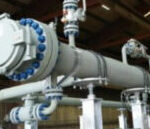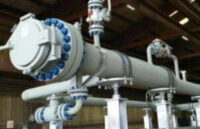The Comprehensive Guide to Meter Skid Systems in Oil and Gas Operations




Introduction to Meter Skid Systems
A meter skid, often a pivotal component in oil and gas operations, is an integrated framework that includes all necessary metering devices and controls to facilitate fluid transfer. These systems are crucial for ensuring accurate measurement, managing flow control valves, and supporting overall operational efficiency.
Understanding Metering Systems
Metering systems are engineered to measure the flow of liquid and gas accurately. Employing technologies such as Coriolis flow meters and orifice meters, these systems can determine both mass or volume with high precision, essential for effective gas flow measurement.
Importance of Accurate Gas Flow Measurement
Accurate gas flow measurement, achievable through metering systems and devices like Coriolis flowmeters, ensures that gas flows through pipelines are monitored precisely. This accuracy is vital for both safety and economic reasons in oil and gas operations.
Components of a Gas Metering Skid
A typical gas meter skid might include several key components:
- Flow computers and PLC control systems to automate measurements
- Thermal relief valves and flow control valves to regulate the flow and pressure
- Temperature sensors and air eliminators to ensure measurement accuracy and safety
The Role of Storage Tanks and Volumetric Flow
Storage tanks are integral to managing liquid hydrocarbons in oil facilities. The volumetric flow needs to be meticulously controlled to maintain the exact volume needed for processing and sale. Systems often incorporate meter skids to automate this process.
Advanced Metering Infrastructure
Advanced metering infrastructure includes orifice meters and turbine or positive displacement flow meters to cater to different types of fluids, including crude oil and refined products. These meters are connected to prover connections to validate flow readings periodically.
Fiscal Metering: The Heart of Financial Transactions
Fiscal metering plays a critical role during custody transfer metering events where financial estimates are crucial. This system ensures that the measurement of natural gas or crude oil transferred aligns with financial agreements between parties.
Design Considerations for Metering Systems
When specializing in the design of metering systems, engineers must consider multiple factors such as the type of fluid, the required measurement accuracy, and the material construction—often carbon steel or other durable materials are preferred for meter stations.
Enhancing Safety in Metering Applications
Safety solutions, such as grounding systems and thermal relief valves, are essential in preventing accidents. Metering applications also require regular maintenance to avoid costly disruptions and ensure long-term reliability.
The Future of Metering in Industry 4.0
As the industry moves towards more automated and interconnected systems, metering equipment and techniques like integrated flow measurement are becoming more advanced. These improvements are pivotal in enhancing the measurement accuracy and reliability of modern metering systems.
Conclusion
Meter skids and comprehensive metering systems are indispensable in the oil and gas industry. They not only ensure accurate measurement and efficient fluid transfer but also support critical safety and financial operations. As technology advances, these systems will become even more integral to industrial operations, driving efficiency and safety in new and innovative ways.
